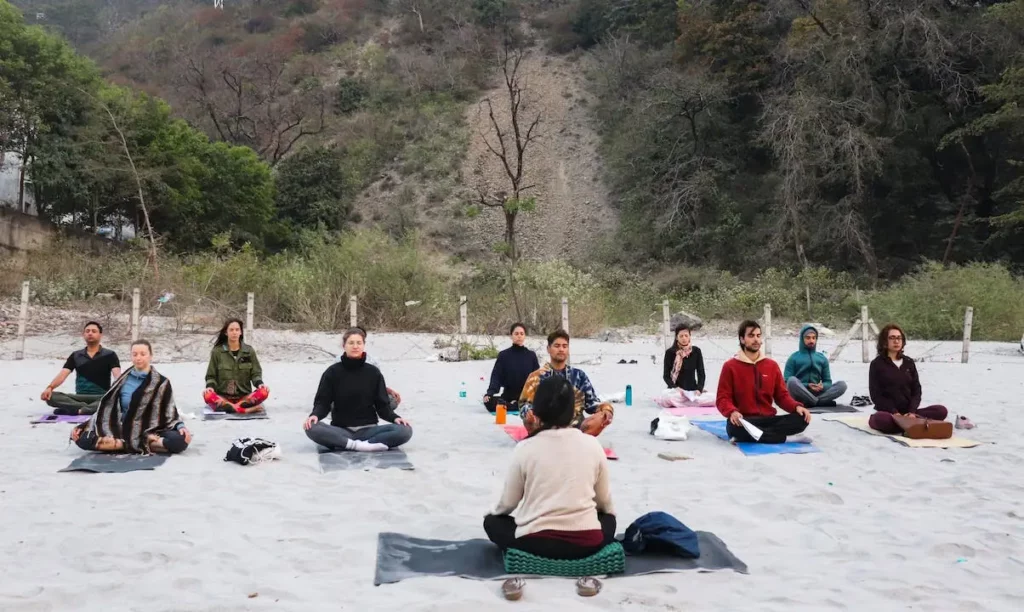In the vibrant journey of spiritual and personal growth, two concepts often interchanged yet distinctly different, play pivotal roles: self-esteem and self-confidence.
At first glance, they may seem like twin reflections of self-perception, yet a deeper dive reveals their unique contributions to spiritual well-being. Self-esteem is the internal compass that can guide self-worth, a quiet yet profound acceptance of self. In contrast, self-confidence is the outward manifestation of abilities and competencies, a dynamic interplay with the world around us.
These twin pillars can be crucial in spiritual journeys. In the realm of spirituality, self-esteem and self-confidence are not mere by-products of inner work; they are vital ingredients for genuine self-discovery and spiritual fulfillment..
This exploration transcends academic inquiry. For anyone pursuing spiritual depth, understanding the interplay between self-esteem and self-confidence is essential. It involves striking a balance, a harmonious equilibrium where both elements mutually enrich and support each other, leading to a more grounded and authentic spiritual life.
In this article, we delve into the nuances of self-esteem and self-confidence, examining how they are nurtured, how they differ, and, crucially, how they can converge on the path of spiritual growth. Our goal is to provide not just deeper understanding but also practical insights for your daily journey towards a spiritually fulfilling life.
I. Understanding Self-Esteem
Self-esteem is more than just a fleeting feeling of pride or shame. It is the narrative that unfolds in our minds, telling the story of intrinsic worth. This deeply ingrained belief system shapes reactions to life’s challenges, influences relationships, and colors perception of a potential place in the world.
A. What is Self-Esteem?
Essentially, self-esteem is how much we value, respect, and feel confident in ourselves. It involves recognizing our strengths and, without undue criticism, acknowledging our weaknesses. High self-esteem isn’t about an inflated ego; it’s about a realistic appreciation of our self-worth. People with healthy self-esteem tend to have a realistic, positive view of themselves, feel worthy of respect, and face challenges with resilience.
On the flip side, low self-esteem can lead to a persistent feeling of inadequacy, an overemphasis on failures, and a reluctance to try new things due to fear of not being good enough.
B. Role in Spiritual and Personal Development
In spiritual and personal development, self-knowledge is fundamental. It can form the base for spiritual practices. With strong self-esteem, individuals are more open to deep self-reflection and personal growth. They engage in spiritual practices wholeheartedly, without being hindered by self-doubt or harsh self-judgment.
As a better understanding of one’s true nature strengthens through spiritual practices, individuals find a closer alignment with their true selves. This alignment is not only vital for personal happiness but also for making positive contributions to the world. Cultivating self-knowledge through exercises like the latihan benefits not just the individual but the community at large.

Read also: Learning to Love Yourself
II. Exploring Self-Confidence
While self-esteem relates to internal acceptance and self-valuation, self-confidence focuses on how to project ourselves in the external world. It’s our trust in our abilities, skills, and judgment – the belief that life’s challenges can be met and succeed.
A. Definition and How It Differs from Self-Esteem
Self-confidence can be seen as self-esteem in action. If self-esteem is the nurturing soil, then self-confidence is the flower blooming from it, visible and vibrant. It encompasses a sense of assurance in our capabilities and the power to face challenges head-on. Unlike self-esteem, which is about self-worth, self-confidence concerns our faith in an ability to handle practical life tasks – decision-making, social interactions, or goal pursuit.
The key distinction lies in their focus; self-esteem is about ‘being’ in relationship with ourselves, while self-confidence is about ‘doing’ and how interaction is possible with the external world. High self-esteem doesn’t automatically equate to high self-confidence, and vice versa. One might have a strong sense of self-worth (self-esteem) but still doubt their abilities in certain scenarios (self-confidence).
B. Its Significance in Spiritual Practices
In spiritual practices, self-confidence in that one is guided by a higher force is invaluable. It enables individuals to engage with spiritual exercises and apply their insights to daily life. Spiritually nurtured self-confidence exudes inner strength and trust, helping individuals face life’s challenges with equanimity and resilience.
III. The Interconnection Between Self-Esteem and Self-Confidence
The relationship between self-esteem and self-confidence is symbiotic, with each influencing and reinforcing the other. Understanding this interplay is crucial in the journey of spiritual and personal growth.
How They Influence Each Other
Self-esteem, our deep-rooted belief in self worth, lays the foundation for self-confidence to grow. When we possess strong self-esteem, we’re more likely to trust intrinsic abilities and make decisions reflecting our true selves, thereby enhancing self-confidence. Conversely, each successful experience—be it overcoming a challenge or mastering a new skill—boosts self-confidence, which in turn feeds back into a more positive self-image and heightened self-esteem.
It’s a harmonious cycle: robust self-esteem encourages us to embrace new experiences, comfortably deal with and acknowledge our character faults, and take healthy risks, leading to an increase in self-confidence as we acquire skills and experiences. And as our self-confidence grows, it reinforces a belief in intrinsic worth, further strengthening self-esteem.
IV. Tips for Enhancing Self-Esteem and Self-Confidence in a Spiritual Context
Cultivating balanced self-esteem and self-confidence and self-knowledge is a journey that can be enriched through various spiritual practices. These strategies not only bolster an inner sense of worth but also enable interaction with the world more assuredly and authentically.

Read also: How to Take Care of Yourself
A. Mindfulness and Meditation
Mindfulness, meditation, and spiritual practices can be effective ways to nurture self-esteem and self-confidence. These practices can foster presence, awareness, and acceptance of thoughts and feelings without judgment. This awareness is key to understanding and reshaping self-narratives.
B. Engaging in Community and Spiritual Teachings
Participation in a spiritual community provides support and guidance on the journey toward self-improvement. Engaging with others who share spiritual goals fosters a sense of belonging and validation.
C. Practical Exercises and Affirmation
Community engagement, incorporating practical exercises and affirmations into routines can further enhance self-esteem and self-confidence. Journaling, for instance, can help identify and challenge negative self-beliefs. Regularly writing can reshape self-perception.
Exercises focusing on gratitude can shift our focus from perceived lacks to an appreciation of our strengths and achievements. This positive focus can significantly boost both self-esteem and self-confidence.
V. The Impact of Self-Esteem and Self-Confidence on Mental Health
The significance of self-esteem and self-confidence extends well beyond self-perception; they are integral to overall mental health and well-being. Psychological research provides deep insights into how these aspects of the self interact with and influence our mental state.
A. Psychological Perspectives
From a psychological standpoint, self-esteem and self-confidence are crucial determinants of mental health. Baumeister et al. (2003) note, “High self-esteem is not a magic bullet for good health, but it does have some positive associations with physical and mental well-being.” This underscores that while high self-esteem isn’t the sole factor in ensuring good health, it is a significant contributor. Individuals with high self-esteem typically experience lower stress and anxiety levels, equipped to face challenges with a positive outlook.
Moreover, self-esteem is dynamic, not static. Brown and Gibbons (2004) state, “Self-esteem is not a fixed trait but a fluctuating aspect of the self influenced by our thoughts, feelings, and behaviors.” This view suggests that through mindful practices and positive life choices, one can actively work towards enhancing self-esteem and, consequently, improving mental health.
B. Balancing Self-Perception and External Influences
Our self-esteem and self-confidence are shaped by internal self-perception and external influences. Cultivating self-esteem rooted in internal values, rather than external validation, is crucial in a world often focused on superficial standards.
Orth, Erol, and Luciano (2018) highlight the importance of self-esteem in mental health: “Self-esteem is a fundamental aspect of personality crucial for mental health and well-being. High self-esteem is associated with positive outcomes like greater happiness, life satisfaction, and social adjustment.” These benefits demonstrate the profound impact of self-esteem on mental health. Healthy self-esteem contributes to resilience, fosters positive relationships, and enhances overall life satisfaction.
Understanding and nurturing self-esteem and self-confidence are vital for mental health. These aspects shape self-perception and influence interactions with the world. Through spiritual practices, mindfulness, and a conscious effort to balance internal and external influences, we can cultivate a self-view that supports and enhances mental well-being, leading to a more fulfilled and balanced life.
Read also: What is Spiritual Exercise?
VI. Final Thought: Self-Esteem vs Self-Confidence
Recognizing that the journey of self-discovery and personal growth is ongoing is essential. The complex interplay between self-esteem, self-confidence, and mental health offers a pathway to a more fulfilling and authentic life.
We understand that self-esteem transcends merely feeling good about ourselves; it’s about recognizing our inherent worth and embracing our unique journey, with all its challenges and triumphs. Similarly, self-confidence is more than a measure of our abilities; it’s a trust in our capacity to navigate life, bolstered by spiritual strength and community support.
Integrating insights into our daily lives opens us to a world of possibilities, where challenges are opportunities for growth, self-doubt transforms into self-acceptance, and every step, no matter how small, leads to greater self-awareness and fulfillment.
Remember, each one of us has the potential to cultivate strong self-worth and confidence. This journey, filled with discovery, growth, and the unfolding of our truest selves, is one well worth embarking on. So, let’s continue on this path with open hearts and minds, supporting and inspiring each other along the way.






